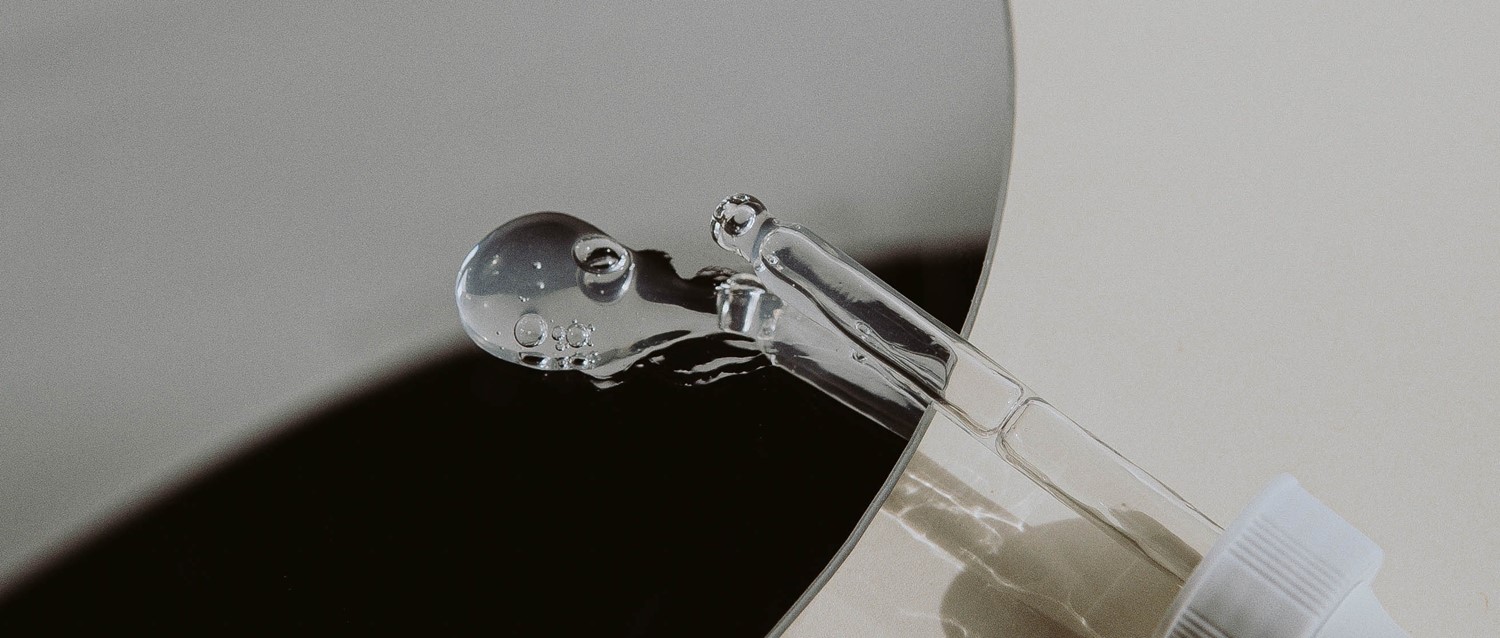
Are skincare products putting you at risk of sunburn?
Peer reviewed by Dr Sarah Jarvis MBE, FRCGPAuthored by Andrea DowneyOriginally published 5 Sept 2021
Meets Patient’s editorial guidelines
- DownloadDownload
- Share
- Language
- Discussion
We all know the importance of SPF to protect our skin from the sun's harmful rays, but did you know that your day-to-day skincare products could increase your risk of sunburn?
In this article:
Video picks for Sun and sunburn
By now most of us are aware that sunburn comes with an increased risk of skin cancer as well as cosmetic damage to the skin, including wrinkles, age spots and a poor complexion. But did you know that certain ingredients in skincare products can actually reduce your threshold for burning, meaning you're more likely to get sunburnt? Probably not the outcome you were hoping for with your skincare routine.
Dr Derrick Phillips, dermatologist and spokesperson for the British Skin Foundation, and Dr Ophelia Veraitch, consultant dermatologist at Cranley Clinic explain more.
Continue reading below
How strong does sunscreen need to be?
Your skincare routine might make you look and feel like you're walking on sunshine, but if you're not protecting your skin then it might end up looking more burnt than glowing.
"The single most important item in any skincare routine is an appropriate sunscreen. This is particularly important in those with fairer skin to mitigate the risk of sunburn," Dr Phillips says.
The British Skin Foundation recommends an SPF of at least 30 with 5 UVA stars - that means it protects from all the sun's harmful rays.
Which skincare products make skin sensitive to the sun?
Back to contents"It is also worth noting that some skincare product ingredients may reduce your threshold for burning and caution should be exercised when using products containing these ingredients," Dr Phillips adds.
Those ingredients include retinoids, acids and lightening agents - ingredients commonly found in most skincare routines.
Retinoids
Retinoids are chemicals derived from vitamin A and are commonly found in skincare products due to their anti-acne and anti-ageing capabilities.
Common retinoids include retinol, adapalene and tretinoin.
"Retinoids smooth fine lines and wrinkles and also help to fade dark marks on the skin," Dr Phillips explains.
"They do this through increased skin cell renewal and stimulating new collagen production. The new skin that forms is more sensitive to ultraviolet light and susceptible to burning."
But Dr Phillips adds that not all retinoids are equal.
"Retinoids are available in different strengths, and some are only available via prescription. Side effects may be reduced with lower-strength preparations," he says.
Acids
Acids sound like they're extremely harsh on the skin, and some can be, but they're far more common in skincare products than you think.
In fact, if you look through the ingredients of your face wash or exfoliator, you're likely to see acids on the list.
"Alpha-hydroxy acids (such as glycolic acid) and beta-hydroxy acids (such as salicylic acid) are a common staple of many skin care routines," Dr Phillips says. Amino acid and hyaluronic acid are also a prominent ingredient in many in skincare products.
"They exfoliate by removing the upper layer of skin, fading dark marks and rejuvenating the complexion."
While removing the upper layer of skin does wonders for your complexion, it also means the newer skin you've exposed is more sensitive.
"With exfoliation, the skin loses some of its resilience to UV light and the threshold for burning is reduced," Dr Phillips adds.
Lightening agents
If you have dark patches on the skin or suffer from hyperpigmentation then you're likely using lightening agents in your skincare products.
"Hydroquinone is a lightening agent that is used to treat dark blemishes on the skin, post-inflammatory hyperpigmentation and melasma," Dr Phillips explains.
"It works by interfering with melanin production in the skin. This interrupts the usual tanning response to sun exposure and can lead to sunburn. It should be used under the supervision of a dermatologist and avoided during the summer months or before a sunny holiday."
Continue reading below
How to protect your skin from the sun
Back to contentsIf you're using skincare products with these ingredients there are several steps you can take to protect your skin against the sun.
First and foremost is SPF, as we've already covered. It should be applied every morning and topped up during the day, according to Dr Veraitch.
"If people are using skincare products that make their skin more sensitive to the sun (such as retinol) they should ensure they apply a high-factor broad-spectrum SPF every morning and continue to reapply throughout the day," she says.
"Also using hats and glasses to cover up when going out in the sun is beneficial for additional protection."
It's also best to use retinols and acids at night, Dr Phillips adds.
By using them at night you're giving your skin time to reap the benefits of these products without the added risk of damage from the sun.
How vitamins help protect your skin from the sun
Back to contentsVitamins aren't just good for the body, they're good for the skin too.
Topical antioxidants and vitamins can protect the skin against free radicals and environmental damage from pollution and the sun.
"Antioxidant beauty products may also be used to mitigate against free radicals generated by UV exposure," Dr Phillips explains.
"Free radicals are reactive molecules that can damage DNA, proteins and other important structures in the skin. Antioxidants, such as vitamin C, vitamin E, grape seed, green tea and resveratrol, neutralise free radicals and prevent damage."
Continue reading below
How to choose the right sunscreen
Back to contentsWhen it comes to SPF there's plenty to chose from, but it can also be a bit overwhelming.
So, how can you pick the right SPF?
"SPFs are rated on a scale of 2 to 50+ based on the level of protection they offer, with 50 offering the strongest protection. They should also have a star rating that indicates the UVA protection: the highest rating is five stars which I would always recommend looking for," Dr Veraitch says.
"I would recommend using an SPF 30 during the winter and when indoors, and SPF 50 for maximum protection in the summer."
Which sunscreen is best for acne?
It's also important to read the ingredients on your sunscreen so you get the best results for your skin. For example, if you have oily, spot prone skin then an oil-based sunscreen isn't likely to work well for you.
"Oil-free sunscreen, or non-comedogenic sunscreen, is beneficial for a number of reasons and is especially suited for greasy or acne-prone skin because it doesn't create a build-up of oil and grease that can clog pores and increase breakouts,” Dr Veraitch adds.
Is waterproof sunscreen better?
"Another option with sunscreen is whether it's waterproof or not. While waterproof sunscreens are better at staying on the skin when you're in and out of the water, the fact that they're made with synthetic chemicals such as silicones and petrochemicals means that they create a barrier to stop them being washed off which can block pores.
"People with congestion-prone skin may find that these cause breakouts."
Best sunscreen for sensitive skin
If you have sensitive skin it's best to avoid sunscreens with fragrances as they can cause irritation, and skin that's prone to melasma or other pigmentation issues should wear a high protection SPF 50 sunscreen all year round, Dr Veraitch explains.
Patient picks for Sun and sunburn

Skin, nail and hair health
How to treat sunburn at home
Most of us are careful to follow sun-safe guidelines. But if you forget to put on or reapply sun cream or stay a little too long in direct sunlight - knowing how to treat sunburn at home is important.
by Lawrence Higgins

Skin, nail and hair health
Could you be allergic to the sun?
We all know that sun exposure without adequate protection can be harmful to our skin, and may lead to sunburn, skin damage and an increase in the risk of skin cancer. But for some, exposure to the sun's rays can result in a more extreme reaction - known as photosensitivity or sun allergy.
by Gillian Harvey
Continue reading below
Article history
The information on this page is peer reviewed by qualified clinicians.
5 Sept 2021 | Originally published
Authored by:
Andrea Downey
Peer reviewed by
Dr Sarah Jarvis MBE, FRCGP

Ask, share, connect.
Browse discussions, ask questions, and share experiences across hundreds of health topics.

Feeling unwell?
Assess your symptoms online for free
Sign up to the Patient newsletter
Your weekly dose of clear, trustworthy health advice - written to help you feel informed, confident and in control.
By subscribing you accept our Privacy Policy. You can unsubscribe at any time. We never sell your data.